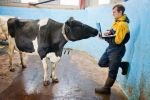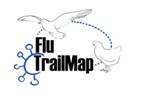Dr Pablo Alarcon-Lopez
Department: Pathobiology & Population Sciences
Campus: Hawkshead
Research Groups: Pathogen Flow in Ecosystems, Sustainable Food Systems, Food Safety, IRLFS (Research Programme)
Research Centres: Veterinary Epidemiology, Economics and Public Health
Pablo’s research and teaching focus on the economics of animal health. His interests include mapping and assessing the governance of livestock food systems; understanding the economic drivers behind the emergence, prevention, and control of animal diseases; evaluating their economic burden across stakeholders in the food chain; and developing economic decision-support tools for disease control to enhance food safety, strengthen food security, and optimize production processes and animal welfare. In addition, Pablo contributes to undergraduate veterinary education through teaching in the area of One Health, Economics of One Health and Veterinary Public Health. He is currently the course director for the MSc in One Health: ecosystems, humans and animals.
Pablo graduated in Veterinary Medicine in 2005 by the University of Cordoba, Spain. He undertook a MSc in veterinary epidemiology at the RVC and, subsequently, worked in the epidemiology division of the same institution for two years before starting his PhD in September 2009. For his PhD he investigated the epidemiological and economical impact of porcine post-weaning multi-systemic wasting syndrome in England. In addition, his research also focused on the investigation of pig farmers' decision-making process for disease control. He graduated from his PhD in 2012. He then started a post-doctoral research fellowship in food systems at the RVC and at the Leverhulme Centre for Integrative Research on Agriculture and Health (LCIRAH). He investigated the livestock value chains operating in Nairobi, Kenya, and their role in emergence of food safety risks and in the city’s food security. He also continue developing economic models to assess disease impact and effectiveness of interventions for other animal diseases, such as Schmallenberg, avian influenza and PRRS. In 2016, he joined the Animal and Plant Health Agency (APHA) as a veterinary epidemiologist, where he provided epidemiological support on the design and analysis of livestock disease surveillance, and for outbreak investigations. In particular, he provided support to the European Union reference laboratory for Avian Influenza and TSEs, and in the development of antimicrobial resistance research projects. In 2017, he started a position as Lecturer in Animal Health Economics at the RVC, and in 2025 he became an associate professor.
Current Research Projects
-
2024–2026: FLU:Trailmap – Transmission and Risk of Avian Influenza: Learning More to Advance Preparedness – Co-Investigator (RVC Lead). Funded by BBSRC / Defra.
-
2024–2025: Zimbabwe Fleming Fellowship – Mentor. Funded by Fleming Fund.
-
2023–2027: Ecology and Biology of HPAIV H5 (Kappa-Flu) – Co-Investigator. Funded by Horizon / UKRI.
-
2022–2025: Early-life Determinants of Performance and the Economics of Thoroughbred Breeding – Residency Co-supervisor. Funded by the Horserace Betting Levy Board and Racing Foundation.
PhD Supervision
-
2025-2028: Evaluate of various interventions to control feed-transmitted pig pathogens. - Co-supervisor
-
2024–2026: Modelling the Economic Impact and Control of High Pathogenic Avian Influenza in Selected European Regions – 1st Supervisor.
-
2023–2026: Modelling Effectiveness of Strategic Decisions by Food Safety Services in the UK Animal Source Food System – 1st Supervisor.
-
Completed 2025: Impact of Food Chain Health Risk Messages on Consumers’ Demand for Poultry Products in India – Co-supervisor.
-
Completed 2024: Strategic Decision-making Processes Related to Antibiotic Use and Misuse in India’s Broiler Poultry – 1st Supervisor.
-
Completed 2022: Antibiotic Usage in GB Dairy Herds: Improving Data Capture and Exploring Drivers – Co-supervisor.
-
Completed 2021: Cost-effectiveness of Poultry Vaccination for Control of H9N2 Avian Influenza in Pakistan – Co-supervisor.
-
Completed 2020: Addressing UK Broiler Slaughterhouse Condemnation: An Epidemiological Case Study – Co-supervisor.
Past Research Projects
-
2022–2023: Understanding Animal Health Threats from Emerging H5 High Pathogenicity Avian Influenza Viruses (FluMap) – Work Package Leader. Funded by BBSRC / Defra.
-
2022–2023: Kenya Fleming Fellowships – Mentor. Funded by Fleming Fund.
-
2021–2022: Rationally Designed Live-attenuated Lumpy Skin Disease Vaccines – Co-Investigator (Economic Modelling). Funded by UKRI.
-
2020–2021: Antibiotic Stewardship in Agricultural Communities in Africa and Asia: A Unified One Health Strategy to Optimise Antibiotic Use – Co-Investigator. Funded by GCRF Challenge Clusters.
-
2020: Understanding People, Business and Culture in Combating Infectious Disease and Antimicrobial Resistance (AMR) – Co-Investigator. Funded by Bloomsbury Set.
-
2019–2023: UKRI One Health Poultry Hub – Researcher and Work Package 6 Leader. Funded by UKRI.
-
2018–2022: Operationalising Antibiotic Stewardship in India’s Pluralistic Rural Health System (OASIS Project) – Co-Investigator (RVC Lead). Funded by MRC.
-
2018–2019: Assessment and Economic Evaluation of Small Ruminant Reproduction Efficiency, Challenges and Mitigation Strategies in Kajiado, Kenya – Principal Investigator. Funded by BBSRC / NRF Kenya.
-
2015: Economic Impact of PRRS and Efficiency of PRRS Vaccine – Researcher. Funded by MSD Animal Health.
-
2012–2016: Epidemiology, Ecology and Socio-Economics of Disease Emergence in Nairobi – Researcher. Funded by MRC.
-
2012: Economic Evaluation of Schmallenberg Vaccine in Sheep, Dairy and Beef Farms (France and UK) – Researcher. Funded by Merial.
-
2008–2012: Aetiology, Pathogenesis and Immunology of Post-weaning Multi-systemic Wasting Syndrome in Pigs – Researcher. Funded by BBSRC.
Pablo has currently over 65 peer review publications (See google scholar page)
|
Selected Publications – last 3 years |
Camilla Strang, Lucy Brunton, Pablo Alarcon, Jacqueline M Cardwell. 2025. A qualitative content analysis of factors influencing British dairy farmers’ willingness to share antibiotic usage data. Research Square. https://doi.org/10.21203/rs.3.rs-7037458/v1
Paniz Hosseini, Ivo Syndicus, Eve Houghton, Pablo Alarcon, Guillaume Fournie, Javier Guitian, Andy Paterson, Ashley C. Banyard, Ian H. Brown, Richard Hepple, James L.N. Wood. 2025. Qualitative studies on farm managers perception of risk from HPAIV and implementation of biosecurity measures on UK poultry farms. Pre Vet Med journal, 239, 106445
Mathew Hennessey, Pablo Alarcon, Indranil Samanta, Guillaume Fournié, Haidaruliman Paleja, Kumaravel Papaiyan, Meenakshi Gautham. 2025. Formulating antibiotic policy: Analysis of India’s ban on colistin use in food producing animals. Pre Vet Med journal, 240, 106534
Mathew Hennessey, Indranil Samanta, Guillaume Fournie, Matthew Quaife, Haider Paleja, P Kumaravel, Ripan Biswas, Pablo Alarcon. 2005. A principal-agent assessment of stakeholder perspectives on broiler production and antibiotic use. A case study from West Bengal, India. Plos One (accepted)
Ann Allain and Pablo Alarcon. Health infrastructure evaluations of trading partners for equivalence: Why they are important and current hurdles for One Health collaboration. Can Vet J . 2024 Aug;65(8):817-824.
Aslam HB, Häsler B, Iqbal M, Yaqub T, Alarcon P. 2024. Financial impact of low pathogenic avian influenza virus subtype H9N2 on commercial broiler chicken and egg layer production systems in Pakistan. Preventive Veterinary Medicine. 2024;233:106346.
Arnold JC, Onono J, Ballesteros C, Aboge G, Alarcon P. 2024. Modelling the economic performance of small ruminant pastoralist flocks and financial impact of changes in reproductive performance and mortalities in Kajiado County, Kenya. Frontiers in Sustainable Food Systems. 2024;8:1406864.
Mouncey RR, Alarcon P, Verheyen KL. 2024. Determinants of Thoroughbred yearling sales price in the UK. Veterinary Record Open. 2024;11(1):e81.
Alarcon P, Strang CL, Chang YM, Tak M. Economic evaluation of antimicrobial usage surveillance in livestock. Revue Scientifique et Technique. 2023;42:42-51.
Lavinia Scudiero, Mehroosh Tak, Pablo Alarcón, Bhavani Shankar. Understanding household and food system determinants of chicken and egg consumption in India. Food Security 15, 5, 1231-1254pp
Drewe JA, Snary EL, Crotta M, Alarcon P, Guitian J. 2023. Surveillance and risk assessment for early detection of emerging infectious diseases in livestock. Scientific and Technical Review. 2023;42:5.
Dien NT, Khue NTM, Ebata A, Fournié G, Van Dai N, Tuan HA, Hoa PTT, Nguyen VD, Ton VD, Alarcon P. 2023. Mapping chicken production and distribution networks in Vietnam: An analysis of socio-economic factors and their epidemiological significances. Preventive Veterinary Medicine. 2023;214:105906.
Alarcon P, Wall B, Barnes K, Arnold M, Rajanayagam B, Guitian J. 2023. Classical BSE in Great Britain: Review of its epidemic, risk factors, policy, and impact. Food Control. 2023;146:109490.
Häsler B, Queenan K, Alarcon P, Raj E, Whatford L. Where One Health meets food systems teaching and learning: Expanding skillsets for food system transformation. One Health Cases. 2023;ohcs20230010:2.
Hennessey M, Ebata A, Samanta I, Mateus ALP, Arnold JC, Day D, Alarcon P. (2023) Pharma-cartography: Navigating the complexities of antibiotic supply to rural livestock in West Bengal, India, through value chain and power dynamic analysis. PLOS ONE. 2023;18(2):e0281188.
Hennessey M, Fournié G, Quaife M, Alarcon P. Modelling multi-player strategic decisions in animal healthcare: A scoping review. Preventive Veterinary Medicine. 2022;205:105684.
Kiambi S, Fèvre EM, Alarcon P, Gitahi N, Masinde J, Kang'ethe E, et al. Assessment of milk quality and food safety challenges in the complex Nairobi dairy value chain. Frontiers in Veterinary Science. 2022;9:892739.
Rawlins ME, Limon G, Adedeji AJ, Ijoma SI, Atai RB, Adole JA, Alarcon P, et al. Financial impact of sheeppox and goatpox and estimated profitability of vaccination for subsistence farmers in selected northern states of Nigeria. Preventive Veterinary Medicine. 2022;198:105503.
Pablo contribute to development of material and teaching delivery to a variety of students at the Royal Veterinary College. He provides teaching on:
- Animal health economics to undergraduate veterinary students
- Food safety and Veterinary Public health teaching to undergraduate veterinary students
- One health economics to the students in the MSc in Veterinary Epidemiology and MSc One Health
- Provide support to distant learning MSc students
Pablo also participates actively in the supervision of BSc and BVetMed research projects and MSc Veterinary Epidemiology and MSc One Health dissertations.
-
Antibiotic usage on dairy farms in GB: improving data capture and exploring drivers
The aims of this PhD were to determine the accuracy of antibiotic usage data being recorded by dairy farmers on farm, identify factors influencing accurate recording, assess the drivers and barriers to record and share such data and to explore the economic cost of recording. Antibiotic usage (ABU) has become recognised as the main driver for the selection and spread of antibiotic resistance (ABR) within the human and livestock sectors.
-
Early-life determinants of performance and the Economics of Thoroughbred breeding
The project aims to improve understanding of the impact of Thoroughbreds’ early-life health and management on later-life racing performance and the financial viability of Thoroughbred breeding enterprises.
Findings from the project will align with key priorities from the Thoroughbred industry’s welfare strategy. Firstly, by increasing transparency around the fate and welfare of Thoroughbreds bred for racing during their early-life stages, and secondly by informing strategies to reduce musculoskeletal disease and injury and improve industry retention and economic viability.
-
FluTrailMap (Poultry) consortium
The project brings together leading researchers at top UK scientific organisations to better understand and mitigate the threats of bird flu viruses to the poultry sector.
-
UK Research and Innovation (UKRI) Global Challenges Research Fund (GCRF) One Health Poultry Hub
With integrated streams of social, economic, biological, mathematical and policy-led research, we are co-producing detailed knowledge on the biological, structural and socio-economic factors that shape networks of chicken production and distribution. The RVC-led UKRI GCRF One Health Poultry Hub brings together leading laboratory, clinical, veterinary and social scientists, as well as skilled communications experts, programme support staff and external stakeholders.




